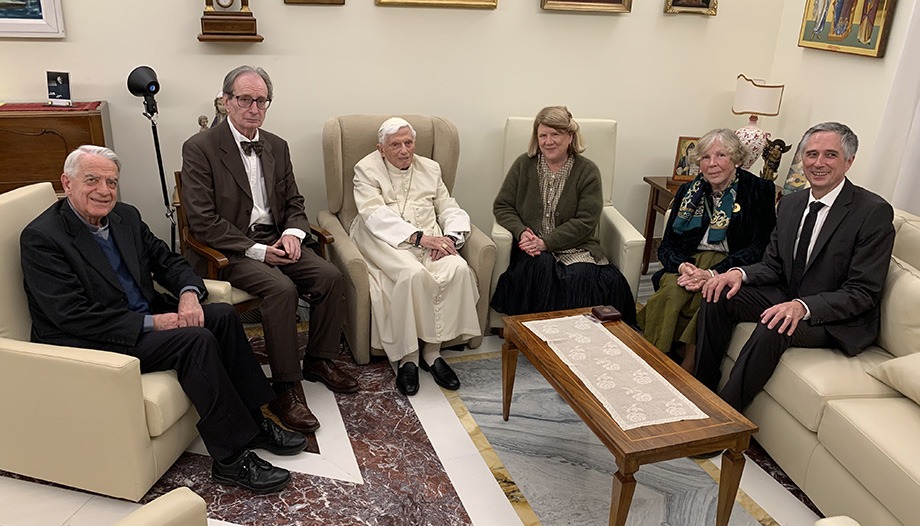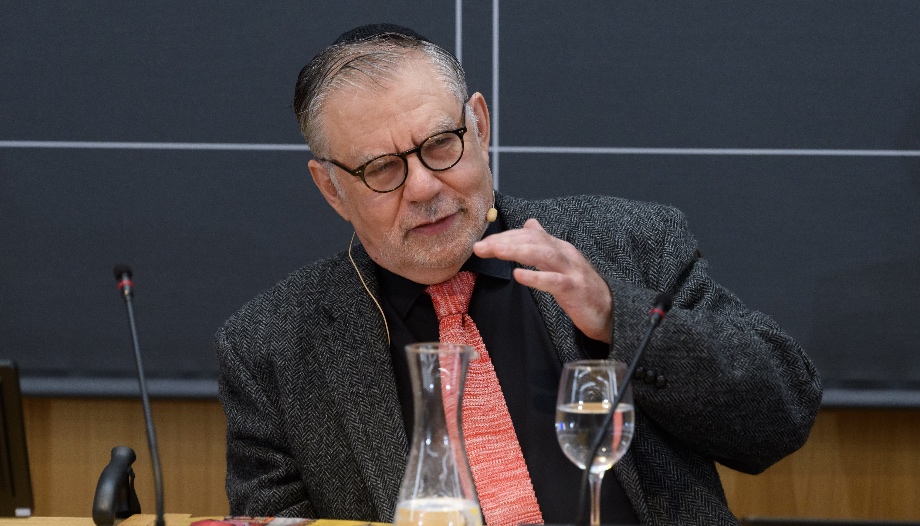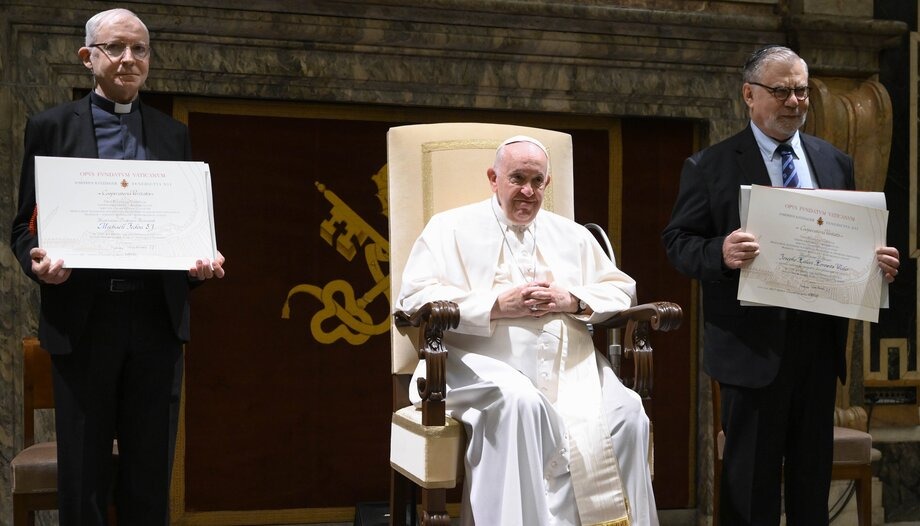 Joseph WeilerWe see the consequences of a society full of rights but without personal responsibility".
Joseph WeilerWe see the consequences of a society full of rights but without personal responsibility". Original paper by Dr. Tracey Rowland in Omnes. Contemporary theology and culture
Original paper by Dr. Tracey Rowland in Omnes. Contemporary theology and culture "Are we facing a new ethic of sexuality in the German Synodal Way?"
"Are we facing a new ethic of sexuality in the German Synodal Way?"The Clementine Hall of the Apostolic Palace was the setting for the presentation by Pope Francis of the Ratzinger Prize 2022 to Professors Michel Fédou and Joseph Halevi Horowitz Weiler.
They were joined by members of the Joseph Ratzinger Vatican FoundationThe Australian theologian, who was the driving force behind this recognition, among other personalities, has received this award. Tracey Rowland or the German Hanna B. Gerl-Falkovitz.
The event began with a welcome address by Card. Gianfranco Ravasi and Federico Lombardi, S.I., President of the Foundation.
After the first greetings and the presentation of the profile of the awardees, Pope Francis presented the award and addressed the awardees.
In his words, Francis stressed that "we all feel his (Benedict XVI's) spiritual presence and his accompaniment in prayer for the whole Church. But this occasion is important to reaffirm that the contribution of his theological work and, in general, of his thought, continues to be fruitful and operative".

In his words, the Pope did not want to forget the role of the Pope Emeritus in the Second Vatican Council, which this year marks the 60th anniversary of its opening. In this regard, the Pope stressed, Benedict XVI "has helped us to read the conciliar documents in depth, proposing a "hermeneutic of reform and continuity".
He also referred to the publication of Joseph Ratzinger's Opera Omnia, which will offer readers the theological contributions of the former pastor of the Church after St. John Paul II.
These contributions, in the Pope's words, "offer a solid theological basis for the Church's journey: a "living" Church, which has taught us to see and live as communion, and which is on the move - in "synod" - guided by the Spirit of the Lord, always open to the mission of proclaiming the Gospel and serving the world in which it lives", recalling the words of Pope Benedict XVI at the opening Mass of his pontificate.
In addition, the Pope addressed the Joseph Ratzinger - Benedict XVI Vatican Foundation, whose work, he pointed out, "is situated in this perspective, in the conviction that his magisterium and his thought are not directed to the past, but are fruitful for the future, for the application of the Council and for the dialogue between the Church and the world of today". Joseph Ratzinger encouraged the members of this Foundation to collaborate with the Vatican foundations. Blessed John Paul I and of St. John Paul II", so that the memory and vitality of the message of these three Popes may be promoted in union of intentions in the ecclesial community".
Weiler and Fédou, in harmony with Benedict XVI
The Pope pointed out that the work of the award winners has been in fields dear to Benedict XVI. In this line, he pointed out how "Father Michel Fédou has delved especially into the works of the Fathers of the Church of the East and West, and into the development of Christology over the centuries". A study that has not focused on the past but "nourished in him a living thought, capable also of addressing current issues in the field of ecumenism and relations with other religions".

On the other hand, in relation to the Professor WeilerPope Francis did not want to forget that "he is the first personality of the Jewish religion to receive the Ratzinger Prize, which until now has been awarded to scholars belonging to different Christian confessions. He also stressed that "the harmony between the Pope Emeritus and Professor Weiler refers in particular to questions of substantial importance: the relationship between faith and juridical reason in the contemporary world; the crisis of juridical positivism and the conflicts generated by an unlimited extension of subjective rights; the proper understanding of the exercise of religious freedom in a culture that tends to relegate religion to the private sphere". A subject that Weiler himself has dealt with assiduously, as in the case of the Omnes Forum.
Pope Francis emphasized the courageous attitude taken by Professor Weiler "passing, when necessary, from the academic level to the level of discussion - and we could say "discernment" - in the search for consensus on fundamental values and the overcoming of conflicts for the common good".
The Pope concluded with an appeal to take these examples as "lines of commitment, study and life of great transcendence, which arouse our admiration and demand to be proposed to the attention of all".











